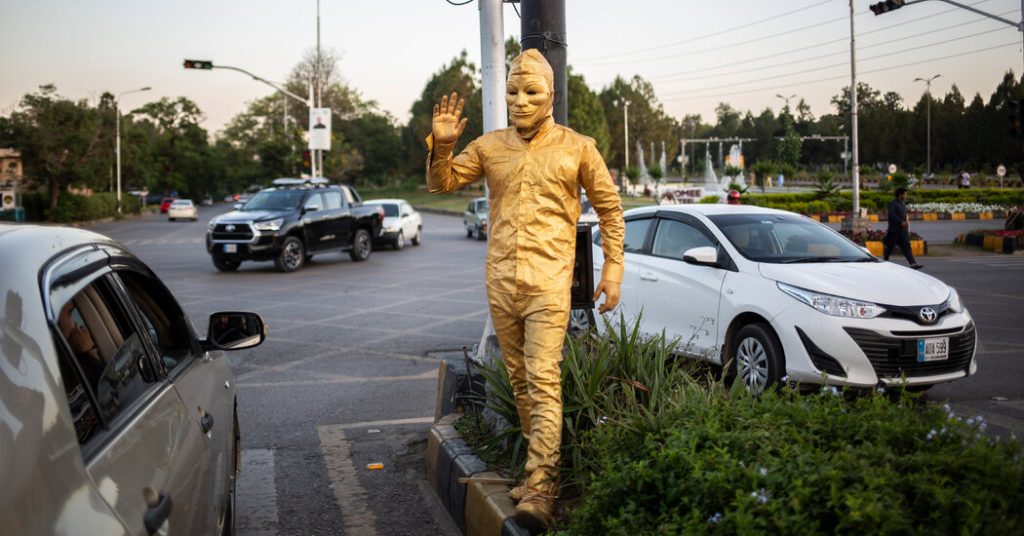In Islamabad, street performers dressed in gold paint have become a common sight in recent years, standing still and posing for passers-by in exchange for tips. However, in Pakistan’s environment of pervasive suspicion, these “golden men” have sparked conspiracy theories about their possible ties to intelligence agencies, politicians, or even foreign entities like the C.I.A. The prevalence of conspiracy theories in Pakistan is deeply ingrained in the culture, with wild tales emerging after major events such as floods or terrorist incidents.
The history of conspiratorial thinking in Pakistan can be traced back to the intrigue-filled reigns of the Mughal emperors and has been further fueled by the reverence and mythology surrounding the country’s military and intelligence services. This environment of suspicion has led to a general sense that everyone, including street performers, could potentially be tools of the state. Due to the widespread belief in the omnipresence of intelligence agencies, people have developed techniques to spot potential informants based on their clothing and behavior.
Despite the kernel of truth underlying suspicions of surveillance by intelligence services, the growing frustration with the military’s interference in politics has heightened feelings of paranoia among the populace. People now speak in code and take precautions to avoid being overheard or monitored. Street vendors and residents alike worry about being watched or listened to, reflecting a broader sense of anxiety and distrust towards those in power.
For the street performers themselves, the allure of earning more money as a “golden man” has diminished over time as the novelty has worn off. While some speculate about the possibility of these performers being involved in intelligence work on the side, the performers themselves distance themselves from such activities. The Golden Thakur of Islamabad, a former umbrella seller turned street performer, insists that he would never engage in any intelligence work, though he acknowledges that it’s a possibility for others in the same line of work.
The culture of conspiracy theories and suspicion in Pakistan has become so widespread that even seemingly mundane occurrences can spark wild speculations. The climate of mistrust and surveillance has intensified in recent years, leading to a sense of unease and uncertainty among the population. While the origins of these beliefs can be traced back to historical influences and power dynamics, the current atmosphere of fear and paranoia is palpable in everyday interactions and routines in Islamabad.


